Fossil File Formats
= fossil scm

enduring file format
https://hyp.is/hZRguLToEeyKKo_pp-3p0A/fossil-scm.org/home/doc/trunk/www/fileformat.wiki
Fossil File Formats
= fossil scm

enduring file format
https://hyp.is/hZRguLToEeyKKo_pp-3p0A/fossil-scm.org/home/doc/trunk/www/fileformat.wiki
Git Version Control System, withits immutable objects and mutable references
= Git - immutable objects - mutable references
Object content addressing constructs a web
= constructs = Object content addressing =a Web - significant bandwidth optimization - untrusted content serving - permanent links - ability to make full permanent backups of - any objects & its references
= comment = for = IndyPLEX - nodes with all - outgoing and incoming - qualified links and target references
Fundamental Unit of coherent local complete structured information pervasive and universal across all computstion and communication and exhange and storage
made permanent via IPFS
permanence ensured by human readable composite naming conventions that the access and qualifying structure of links, forming shapes
slef-organizing, self-revealing, co-evolving conten in contexts exchanged in trust networks with full provenance
Objects are permanent
object are permanent
way to retrievemutable state at the same path.
retrieve mutable state at the same path
Without it,all communication of new content must happen off-band,sending IPFS links.
= comment = for : IndyWeb - instead of mutable names - rely on off-band interpersonal trust networks - themselves maintained using IPNS instead of making data mutable make the capability in use mutable with permanent names
critical component missing: mutable naming
mutable naming
IPNS: Naming and Mutable State
= section : 3.7 = IPNS - Naming and mutable state
Naming - A self-certifying mutable name system. De-scribed in Section 3.7
= Naming - self-certifying mutable name system
versioned file system hierarchy inspired by Git
= veersioned = file system hierachies - inspired by = Git
epresent arbi-trary datastructures, e.g. file hierarchies and commu-nication systems.
= arbitrary = datastructures - file hierarchies - communication systems
= consider - for = IndyWeb - linked computational capabilities / interpretations
S/Kademlia [1] extends Kademlia to protect against ma-licious attack
= section = S/Kadmelia - extends Kadmelia - protect against = malicious nodes
finding nearby data without querying distant nodes” [5]and greatly reducing the latency of lookups.
= finding nearby = data - wiithout - querying distant = nodes
Additionally, Coral organizes a hierarchy of separateDSHTs called clusters
Coral relaxes the DHT API
= relaxes = DHT API = Coral - sloppy in DSHT - need only a single working peer - can distribut only subset of the values to the nearest nodes - avoiding hot-spots
Kademlia stores values in nodes whose ids are “nearest
= stores values = Kadmelia - in nearest nodes - not application data locality - ignores far nodes that may have the data
= stores addresses of peers = Coral - can provide data blocks
Coral DSHT extends Kademlia
= extends = Kadmelia
wastes storage and bandwidth, as datamust be stored at nodes where it is not needed
= section = Coral DSHT
= do not store data in = DHT
Efficient lookup through massive networks: queries onaverage contact dlog2(n)e nodes. (e.g. 20 hops for anetwork of 10, 000, 000 nodes)
= efficient lookup - through - massive networks - queries on asverage contact log2(n) nodes - 20 hops for a network of 20 million nodes
Kademlia DHT
= section = Kadmelia DHT
BitTorrent MainlineDHT tracks sets ofpeers part of a torrent swarm
= BitTorrent = MainlineDHT - tracks = sets of peers - of a = torrent swarm
reviews important properties of successfulpeer-to-peer systems
= review - properties sucfcessfull = p2p systems - which = IPFS comnbines
The central IPFS principle ismodeling all data as part of the same Merkle DAG
= central - principle - is - modelling all data as - part of the same Merkle DAG
Careful interface-focused integration yields a system greaterthan the sum of its parts.
= careful interface-focused integration - yields = system greater than the sum of its parts
IPFSsynthesizes learnings from many past successful systems.
New solutions inspired by Gitare emerging, such as Camlistore [?], a personal file stor-age system, and Dat [?]
= new solutions - inspired by = Git - camlistore - reanamed = perkeep = personal file storage system = Dat
= comment - missing = Named Data Networks
What remains to be explored is how this datastructure can influence the design of high-throughput ori-ented file systems, and how it might upgrade the Web itself.
= explore = data structures - influence = design - of - high throughput oriented file systems - might upgrade the Web
its content addressedMerkle DAG data model enables powerful file distributionstrategies
= has = Git - content addressed = Merkle DAG = data model
Dat [?] a data collaboration toolchainand dataset package manager
= Dat - collaboration toolchain - dataset packager
Orthogonal to efficient data distribution, version controlsystems have managed to develop important data collabo-ration workflows
= orthogonal to data distribution = collaboration workflows
Pressed by critical features and bandwidth con-cerns, we have already given up HTTP for different datadistribution protocols.
web given up
for other distribution protocols
boiled down to “lots of data, accessible ev-erywhere.
"lots of data, accessible everywhere"
= comment : Data - Godlike - omnipresent - eternal - omnipotent
But we are enter-ing a new era of data distribution with new challenges
= new - challenges = data distribution hosting - petabyte datasets - - computing - on - large = data - across = organizations - high- - volume - definition - on demand - realtime media streams - versioning and linking massive datasets - preventing accidental disappearance if important files
What is lacking is upgradingdesign: enhancing the current HTTP web, and introducingnew functionality without degrading user experience
= lacking = upgrading design
new protocols have emerged and gained wide usesince the emergence of HTTP
= new protocols - emerged - gained widespread use
evolving Webinfrastructure is near-impossible, given the number of back-wards compatibility constraints and the number of strong
= claim - evolving Web infrastructure - near-impossible
= cause - backward-compatibility constraints - strong parties invested
ails to take advantageof dozens of brilliant file distribution techniques invented inthe last fifteen years.
= HTTP - fails to take advantage of - dozens of = file distribution techniques - emerged in the last 15 years
HTTP is the mostsuccessful “distributed system of files” ever deployed
= HTTP - is - the most successful - = "distributed system of files" - - claim : ever deployed
no general file-system has emerged that offers global,low-latency, and decentralized distribution
= - no = general file system - emerged - with - global - low-latency - decentralized distribution
= IPFS - is - global - low-latency - decentralized distribution network
applications were not designed as infrastructure tobe built upon
= - not - designed to be : built upon
tens of millions of nodes churn daily
churn daily
eployed largefile distribution systems supporting over 100 million simul-taneous user
= large file distribution systems - - supporting - over : 100 million simultaneous users
IPFS has no singlepoint of failure, and nodes do not need to trust each other
= IPFS - has - no single point of failure
= nodes - do not need to - trust each other - Trust but verify
IPFScombines a distributed hashtable, an incentivized block ex-change, and a self-certifying namespace
= IPFS - combines - = distributed hashtable - = incentivized block exchange - = self-certifying namespace
= - comment - Once the names are exchanged within - a network of parties of interest - the original source of the names may even go away! - or on need can be recreated
This is key to permanence!
This forms a generalized MerkleDAG, a data structure upon which one can build versionedfile systems, blockchains, and even a Permanent We
= IPFS - forms - = generalized Merkle-DAG - = data structure - to build - versioned file system - blockchains - Permanent Web-
= - NB not built on block chain but can be used to build bclockhains of arbitrary design
InterPlanetary File System (IPFS) i
IPFS as a Named Data/HyperMedia Network Protocol with content-addressable hyperlinks IPLD
allows the construction of a single Global Giant Graph to organize not only knowledge but to connect, people as autonomous actors, ideas, information, data in meaning/intentional way with computational artifacts
IPFS - Content Addressed, Versioned, P2P File System
= use = TrailMarks - plain text - in line - in-notation - to articulate in high resolution meaningfully addressable linkable chunks - where the intent/meaning/saliant aspect/propositional/claim structure ies explicated in a meta level MindGraphj - the intent/salient/aspect/semantics/meaning of content in self-contextualizing high resolution meaningfully searchable self- organuizing contexts forming HyperMaps that ARE the Territory
the following is an experiment to capture in annotation
the narrative, propositional trails
improving the ability to - comprehend - search - high resolution reference - deep self-exlicatory meaningful links - structure and implicate order of the content in context
The InterPlanetary File System (IPFS) is a peer-to-peer dis-tributed file system that seeks to connect all computing de-vices with the same system of files
= gloss = IPFS - - is a : peer-to-peer file system - - connect : all computing devices - - with the : same system of files
PFS provides a high through-put content-addressed block storage model, with content-addressed hyper links.
= IPFS - provides - high throughput - content-addressed - block storage model - - with : content-addressed hyper links
een as a sin-gle BitTorrent swarm, exchanging objects within one Gitrepository.
= IPFS - - seen as : single BitTorent swarm - - exchanging : objects within one Git repository
Kernel is eight weeks of conversation in a "block" of 250 brilliant people intended to connect creativity with care
= what is? = Kernel - 8 weeks of conversations - 250 people - intended to - connect = creativity - with - care
A custom web3 educational community

permalink : https://bafybeielcu7xyvqfoquodjw2i654hv223sj6l4mubttjoisekkpjhevxpi.ipfs.w3s.link/Video_%20Aaron%20Swartz%20Day%20and%20International%20Hackathon%202021%20-%20Part%20One%20(DocDrop).html
Plex: 16 November 2022

When you lose interest in a program, your last duty to it is to hand it off to a competent successor.
= have = the duty - to find = a scucessor
If you have the right attitude, interesting problems will find you.
= have = right attitude - interesting things will find u
`Plan to throw one away; you will, anyhow.'' (Fred Brooks, The Mythical Man-Month, Chapter 11)
= pancake philosophy
The web is more a social creation than a technical one
the current web is shaped by the properties and affordances that as a protocol it engenders.
Location Addressing is a key feature and it naming system shaped it, and constrains all our nontechnical endevaours
The SOcial LInked Data (SOLID) Project of Tim Berners Lee: An Organizational Take
https://hyp.is/poT3mGWkEe2ZE_f5mfMOdw/rubenverborgh.github.io/Knowledge-Graph-Conference-2020/
Capyloon Reclaim Your Web!
=
works similar to Android Intents, and it's a good example of how Capyloon is putting the user's experience first and creating a permissionless interface
a new way of doing Web Intents
UCANs and WNFS and how they can enable decentralized identity encrypted at rest file storage
only requires HTML, CSS, and JavaScript to work. This made apps much more portable and didn't require developers to specialize in one walled garden.
not walled gardens
Learn about Capyloon, a resurrected version of Firefox OS built on top of the decentralized web technologies like the IPFS protocol.
ressurected firefox OS
Projects We Love: Capyloon

companies start with less centralized, federated solid data storage and sharing pods, and a single knowledge-graph enabled data model for all providers in the chain.
= tweet : pipeline automation provides short term kludges long term intractable complications where each data source has it's quirks
@SoLid
federated solid pods
Data analytics pipeline best practices: Data governance Data analytics pipelines bring a plethora of benefits, but ensuring successful data initiatives also means following best practices for data governance in analytics pipelines.
data analytics pipelines
= from : https://twitter.com/AlanMorrison/status/1592684846174068736

build rather than buy with more of a bespoke effort that supports data centricity
= bespoke build = data centricity
Without a transformed data-centric architecture, companies could unwittingly add to the technical and data debt they already face
in addition to technical debt
Out-of-control SaaS bloat, application sprawl and data siloing
Decentralized graphs are more complex. We need new technologies to cope.
IPLD is the data model of the content-addressable web. It allows us to treat all hash-linked data structures as subsets of a unified information space, unifying all data models that link data with hashes as instances of IPLD.
= for = Conceptipedia
= what - is? = IPLD - data model - for the = content-addressable = web - treat = hash-linked data structures - as subsets if a - unified = information space - unifying - all = data models - that - link = data - with = hashes - as = instances - of - IPLD
a single namespace for all hash-inspired protocols
= why = IPLD - single name space for all hash-inspired protocols
their specific underlying data structures are not interoperable.
= why = IPLD - make underlying data structures interoperable
Through IPLD, links can be traversed across protocols, allowing you to explore data regardless of the underlying protocol
= why = IPLD - links can be traversed across protocols - explore data regardless of the underlying protocols
We do not put a subject code in each sense defi-nition (as [Guthrie et al., 1992] do).
= conceptual move = no subject code - but human readable stemmed names
stemmedsense definitions in LDOCE, represented as Prologdatabase structures such as
= stemmed sense definitions in LDOCE prolog databse structures
The conventions we use are: a) Each word to bedisambiguated is the functor of a predicate, contain-ing a list with stemmed sense definitions (in lists)
= gloss = stemmed sense definitions named association lists
Lexical disambiguation using Constraint Handling in Prolog (CHIP) George C. Demetriou 1993 Proceedings of the sixth conference on European chapter of the Association for Computational Linguistics -
Lexical disambiguation using Constraint Handling in Prolog (CHIP)
George C. Demetriou
I would also like to express my appreciation to Dr Gyuri Lajos for the organisational support and advice on CHIP programming and Mr Clive Souter for his useful recommendations. ...
favorable mention permalink

Networks enable community building and social impact

IBM’s design of the single-level storage was originally conceived and pioneered by Frank Soltis in the late 1970s as a way to build a transitional implementation to computers with 100% solids state memory. The thinking at the time was that disk drives would become obsolete, and would be replaced entirely with some form of solid state memory.
pioneered by = Frank Soltis
What Is IBM i Single Level Storage? And Why Should I Care?

Multics ("Multiplexed Information and Computing Service") is an influential early time-sharing operating system based on the concept of a single-level memory.[4][5]
informtation and computing service
single-level memory
Multics

Simplex communication
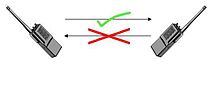
Multiplexing

Duplex (telecommunications)
Zebkit is HTML5 Canvas based UI platform developed with unique EasyOOP JavaScript concept and rich extendible components set

One of the interesting features of NLS was that its user interface was parametric and could be supplied by the end user in the form of a "grammar of interaction" given in their compiler-compiler TreeMeta. This was similar to William Newman's early "Reaction Handler" [Newman 66] work in specifying interfaces by having the end-user or developer construct through tablet and stylus an iconic regular expression grammar with action procedures at the states (NLS allowed embeddings via its context free rules)
Tree-Meta
5 data trends for Chief Data Officers
For inquiries too big to sit within one field of knowledge, maybe it is time we resurrected the salon: a mode of scientific exploration that levels hierarchies of expertise and optimizes for more complementary and high-dimensional, egalitarian, communal discourse.
There is also the not so well known synonym for the salon you have in mind is 'camerata'
https://hyp.is/BRwRnmTHEe2dER9Edi02KA/blog.atomist.com/the-origins-of-opera-and-the-future-of-programming/

Camerata literally means a small orchestra or choir. This Camerata was a diverse group of people who gathered and worked on a common problem: they were bored with polyphony, the esteemed music of their day.
= camerata
- diverse group of people
- musicians, artists, astrologers, philosophers scientists
- met informally
- people with diverse skills and expertise working together
- gathered and worked on common problems
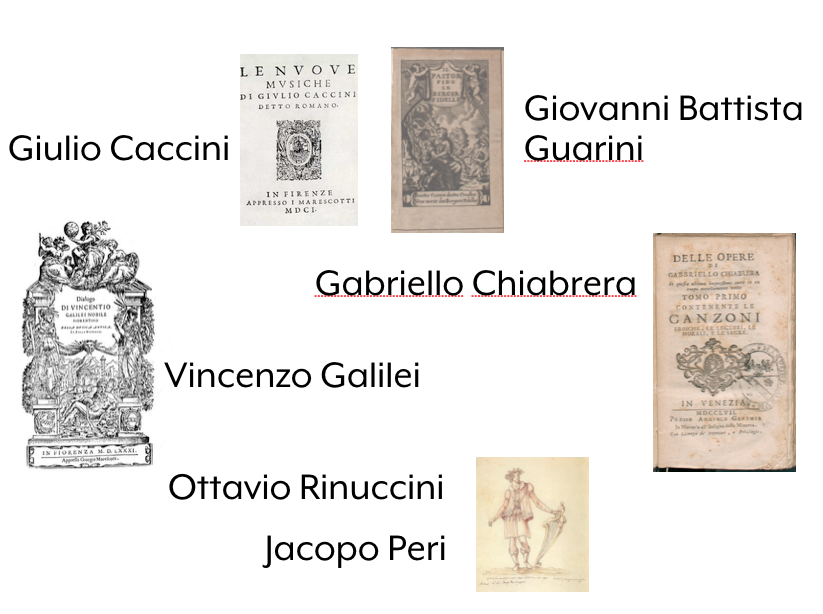
Twitter’s collapse into an unusable wreck is some time off, the engineer says, but the telltale signs of process rot are already there. It starts with the small things: “Bugs in whatever part of whatever client they’re using; whatever service in the back end they’re trying to use. They’ll be small annoyances to start, but as the back-end fixes are being delayed, things will accumulate until people will eventually just give up.”
into and unusable wreck.
Mindplex (Xccelerando) Roadmap Phase 2 🚀 Mid-2021 Progress Report — Part 5
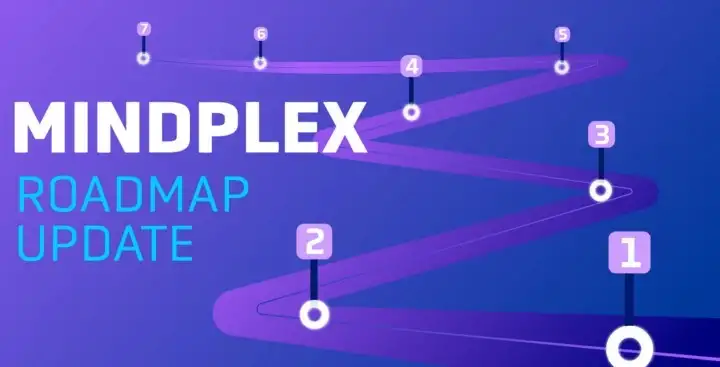
The main require-ment was a programming system for manipulating ex-pressions representing formalized declarative and irnpera-live sentences so that the Advice Taker system could makedeductions.
=- requirement = a programming system for - manipulating expressions - represent formalized - declarative & imperative sentences - = Advice Taker - make = deductions
Decentralized encryptedchat
= peergos
Decentralized encrypted chat Published: Fri 12 November 2021

Computingmachines will do the routinizable work that must be done toprepare the way for insights and decisions in technical andscientific thinking
= computing machinery - will do - routinizable work - prepare the way for insights & - decisions - technica; - scientific thinking
enable men and computers to cooperate in making decisionsand controlling complex situations without inflexible dependenceon predetermined programs.
= enable man and computers to - cooperate in making decisions & - controlling complex situations - without = inflexible dependence on predetermined programs
to let computers facilitate formulative thinking asthey now facilitate the solution of formulated problems,
= let = computers - facilitate - = formulative thinking - as they now facilitate - solutions to = formulated problems
Man-Computer Symbiosis*J. C. R. LICKLIDER
Man-Computer symbiosis
Free Culture

That ideas should freely spread from one toanother over the globe, for the moral and mutual instruction of man, andimprovement of his condition, seems to have been peculiarly and benevolentlydesigned by nature, when she made them,
The downfall of computing was when they invented, enfored copy right on system created in the open.
As long there is a licence we all loose!
Then you can privatize 20 years of development in the commons called Linux
If you can beat them run it inside a proprietary operating system. Better still, rely on emulators for old windows so you no longer need to worry about backward compatibiity
Micropublications: a semantic model for claims, evidence, arguments and annotations in biomedical communications
testing
OSCON 2012: Danny Hillis, "The Learning Map"
The Learning Map
How to Prepare for the End of Card PaymentsCash is safe—for now. Contactless payment methods, like Apple Pay or Google Wallet, are more of a threat to the existence of physical cards.FacebookTwitterEmailSave StoryTo revist this article, visit My Profile, then View saved stories.
R- Micropublications a semantic model
= reference = Micropublications a semantic model
Q- What is a decentralized discourse graph
= what is ? a decentralized discourse graph
The curated briefs are much more paradoxical documents
= curated briefs - paradoxical documents
Learn About a Better Web¶

Learn About a Better Web
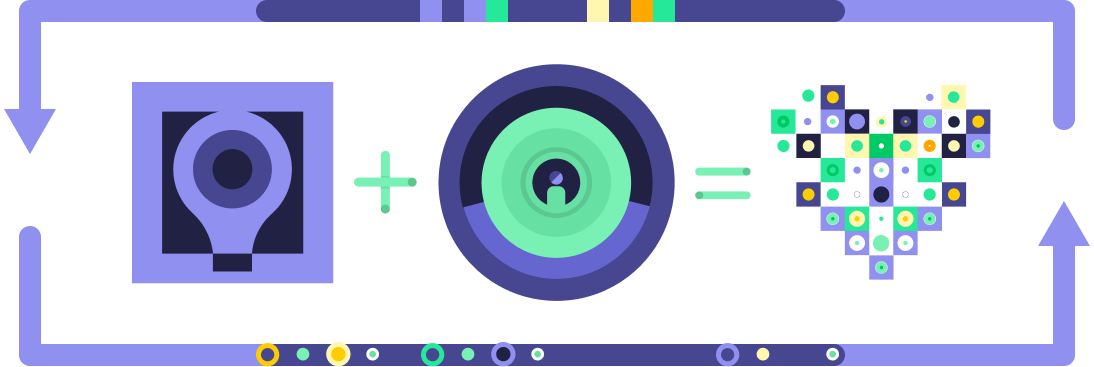
= learn - about = Kernel
f "What is value?" was the ultimate question
🎓
"The Thinking School of "
“Wealth is most essentially knowledge,” Mr. Gilder says. “Let’s face it, the caveman had access to all the materials we have today. Therefore, economic growth is learning, manifested in ‘learning curves’ of collapsing costs driven by markets.” Yet these learning curves get waved away by economists. Mr. Gilder says information, not materials, drives growth: “Crash a car and all its value disappears, though every molecule remains.”
= claim = Wealth is most essentially knowledge - = mutual learning - = symmathesy
is =Symmathesy
forkable uh so they're forkable at the software layer
forkability is much overrated
need things that are born interoperable
IPFS
therefore that i i think that we all live on the intel instruction set there's a whole lot would seem to me 00:27:08 that the the way we push towards uh more diversity of of structure of algorithmic rules and and methods that actually then i suppose tie those together so a lot of these interoperability protocol 00:27:21 solutions polka dot cosmos and so forth so listen to every smart contract essentially a set of algorithmic rules uh i mean that's right
live on the intel instruction set
the ethereum virtual machine being this this base layer he thinks of the algorithm he says i 00:26:31 think of this sort of algorithmic dependency as being something like you know animal farm there's there's this one set of rules that ultimately is the base layer around which we are all compelled to live by right 00:26:43 and and that's i just found that a very disturbing way of thinking about it and it struck me that as much as you know there are great intentions behind uh all of the core developers i would imagine or most of the core developers in a lot of these decentralized systems 00:26:55 and as much as it is an open source system there is still a lot of bias that gets baked into algorithms
bias backed into the algorithm
the vision there is that instead of technology enabling a small set of equity owners to stack up value 00:25:55 more quickly and larger than ever in history uh governance can be decentralized on these platforms and people can have much greater ownership much greater agency on lots of these different networks that there's 00:26:07 pickup participating the trust layer component of this right because you know i think uh you're right there's a lot more built into this system that will hopefully prevent us from 00:26:19 ending up in some other centralized world
equity owners stack up value
The act of curation itself in hypermedia is already deeply meaningful
= the act of curation - - is : deeply meaningful
https://hyp.is/3lGmQGFwEe2nDHMeka0Q4A/www.kernel.community/en/learn/module-3/remember/
We intentionally do not want to reproduce "awesome lists" here that present you with hundreds of links no-one ever reads. Such lists often induce anxiety rather than providing
= - respond - could have those "awesome list" - as hypermapped territories - share = curated trails - designed for specific - = purpose, intent and audience, learning objectives
many people do not learn best by parsing long walls of text.
= nice turn of phrase - parsing long walls of text
The curated briefs are much more paradoxical documents in that they tend to be quite long. Do I contradict myself? Very well, I contradict myself. I am large, I contain multitudes.
paradoxical documents
I contain multitudes
Curated Briefs
=
Crafted Reading
=
Module 0 - An Introduction to Kernel
🌠
Take Back the Web
🌐
how to free the shared record of human knowledge from closed, rent-seeking corporations and extricate ourselves from an extractive attention economy.
The process of tying two items together
associative recall
"user trails"
not users but people, members of a new profession: trailblazers
the human mind [...] operates by association
human mind works by association
we can hardly consult it.
key passage from As We May Think
most critical part of the human record: consultation.Selecting the trail¶
= wow = that's TrailMarks
“lapsed” Jews may truly be our most promising members.

https://hyp.is/Qx2kEGEOEe28VPdNcXUbOw/www.kernel.community/en/learn/module-7/no-paradigm/
No Paradigm
No Paradigm
to quote Douglas Rushkoff, Nothing Sacred. Which also means everything is sacred.
nothing/everything is sacred
decentralization moving from something that's centralized to something that's no
decentralization
=- comment : more than that - ambient - whole - with emergent properties - and self-organization
other kinds of properties that are being baked in from things like block chains
other properties baked in from blockchain
a system with public verifiability
public verifiability
superpowers are defined by the properties of the internet
defined by properties of the internet
new applications give us new superpowers they're like software 00:01:33 granted magic
over the Internet now we work together we play 00:01:21 together we learn togethe
the Internet is humanity's most important technology it's our shared nervous 00:01:07 system our shared brain
This year marks the 60th Anniversary of Doug Engelbart's landmark 'manifesto' Augmenting Human Intellect: A Conceptual Framework – stay tuned for opportunities to celebrate!
60th anniversary
public debut of a dream

Augmentation Research Center
=
“Here is yet another statement of the core idea of this book, that data concerning people is best thought of as people in disguise, and they’re usually up to something.”
x
Semantic layers are read-only. Analyst domain knowledge can never write back to augment the model.
analyst domain knowledge write back to augment the model.
The analytics workflow is broken.
BRAD DEGRAF brad@sociative.net

About Project Mushroom

Join the waitlistProject Mushroom is designed to reclaim power from the scorched earth policies of billionaires on a warming planet. We are building the world that needs to exist because there is no time to waste. We intend for Project Mushroom to be a safe place for creators and their communities to connect and share ideas. We are so excited for you to join us!
reclaim power
A safe place on the internet

Brad deGraf (He/Him) 2nd degree connection 2nd Trust Networks and Collective Decision-Making EdCast UC San Diego Sebastopol, California, United States Contact info
Open data for innovation, useful social graphs, grist for AI, ...
https://pbs.twimg.com/media/EzKDptzVIAkrA5i?format=jpg&name=small
grist for AI
 [find it odd[(https://pbs.twimg.com/media/EzKDptzVIAkrA5i?format=jpg&name=small)
[find it odd[(https://pbs.twimg.com/media/EzKDptzVIAkrA5i?format=jpg&name=small)
I watch what's on my colleagues are doing with language processing with a high in semantic way I find it odd that we're not as humans trying to capture somewhere any internal semantics and when we write in the way either way we link so that oh machine learn and coming the other way down the track and say oh this is what the human beings are
What venues
venues for Sytmergic Mutual Learning (Symmathesy)
Mark the trails you blaze across the Web
with TrailMarks that enables you to designate the subject matter and qualify, characterize, aspectize, operationalie, interpret, contextualize, weaving associative complexes that scaffolds the learning trails, where everything eventually connected in explicitly name meaningful ways
sensemaking within content landscapes
sense making with content landscape
= analogous to = HyperMaps - in - TrailMarks HyperMaps of Salient Context meaningfully connected
Where the Map IS the Territory
traveling salesman problem,
https://hyp.is/Sr09OGBREe23r8thqSk3Ig/www.youtube.com/watch?v=8lYKzj470zc

Stigmergy
= fundamental concept
superorganisms through stigmergy
= super organism = stigmergy
Human-to-human stigmergic marking that facilitates emergent collective behavior and creates open-data social graphs with lots of uses.
consonant with TrailMarks' vision and of course the MEMEX and Engelrbart's Autmenting Human (Inter) Intellect!
find it odd that we're 00:10:49 not as humans trying to capture somewhere any internal semantics and when we write in the way either way we link so that oh machine learn and coming the other way down the track and say oh this is what the human beings are
find it odd ...
why we, as human beings, do not capture the internal semantics when write in the way we link
The Way We Link
Capture the learning (not semantics)
How to Apply Ant Colony Optimization to Traveling Salesman Problem (TSP) Numerical Example~xRay Pixy

Cloud computing’s fatal flaw is that it ”doesn’tleverage power in your pocket.
Information need not be disguised as data
With Web 3 distributed hash tables and other decent(ralized) tech: compute, storage identity
https://twitter.com/TrailMarks/status/1590065639007215616

Compute, Storage, and Identity Foundations
Storage is only the fist square
once you have
Named Data Networks Protocols
https://hypothes.is/a/rlU6VD1gEeyNgBdO8U64tw
can be leveraged to provide Name Networks for Compute, Identity and everything you need, just create it

The Rise of Decentralized Cloud Storage

= about = Stygmergy
= source : https://www.youtube.com/watch?v=tSQHdZ3yXZk
You can now export Telegram chats, media & files to read anytime Last updated on June 25, 202130 Comments
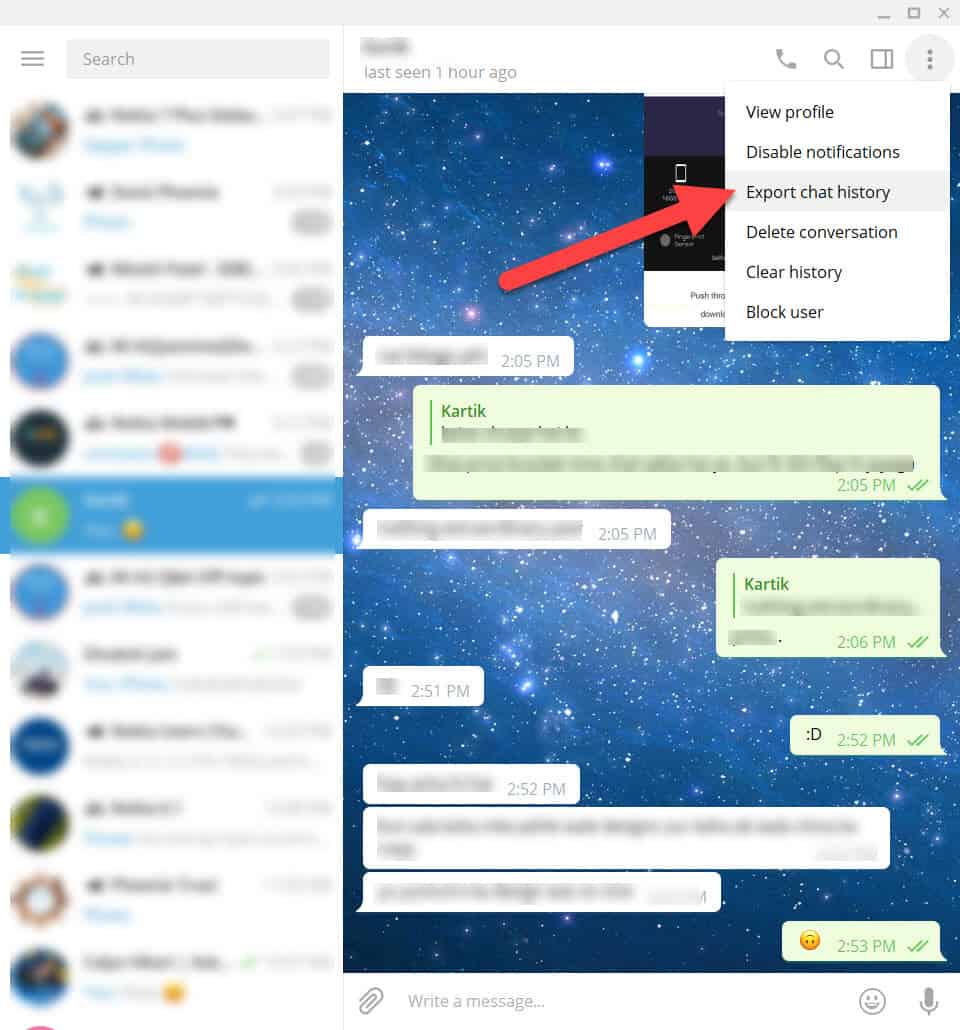
How do I download all files, one time, from a Telegram channel?
dowload telegram channels
= for - integration = Telegram & IndyLab
= comment : Using "Saved Messages" in Telegram to capture links, images, youtube video comments.
I can access these from the browser via the link https://web.telegram.org/z/#936254324
This link is private, requires authenticating with Telegram on my devices
I made copious screen captures and comments in my private "Saved Messages" Telegram Channel on this video
The organic patterns of systems. The Yunus Centre Griffith and Auckland Co-Design Lab 2022

My elders say that it is land that holds all knowledge of life and death and is a constantteacher
land teacher
not to learn its language is to die
Community Wisdom Gardening —2022-11-01
As long as you log into Hypothesis
this pdf is available to be annotated and the annotations can be shared and are visible even if the reader do not have hypothesis chrome extension installed e.g. even on mobile devices)

This is an experiment to share pdf documents with embedded hypothesis annotation tool shipping via IndyHub

= quora - space = Douglas Engelbart

Douglas Engelbart (computer scientist)

What are your reflections on “The Mother of All Demos”?

Follow Spaces to explore your interests on Quora.

Heterarchy is emerging as an important concept with respect to globalization and national and international governance.
globalization
A heterarchy possesses a flexible structure made up of interdependent units, and the relationships between those units are characterized by multiple intricate linkages that create circular paths rather than hierarchical ones.
= has - flexible structure - multiple linkages between units - rather than create circular paths (loops)
Heterarchies are best described as networks of actors—each of which may be made up of one or more hierarchies—that are variously ranked according to different metrics. Etymologically speaking, the term is made up of the Greek words heteros, meaning “the other,” and archein, meaning “to rule.”
= networks - of = actors
x
separation of the Idea into parts by dividing it at the joints as nature directs, not breaking any part in half as a bad carver might
= separation of = Idea - into = parts - by - = dividing = it - at the joints
gathering of scattered particulars into one Idea so that everyone understands what is being talked about;
= gathering | scattering = particulars - into = one Idea - = everyone - understands = what is being talked about